
Giant Statue of Monterosso Al Mare Carved in the Rock, Cinque Terre
EL GIGANTE. El Gigante se encuentra al final de la playa de Fegina, después del aparcamiento. Se trata de una escultura de 1910 en cemento armado y hierro, obra de Arrigo Minerbi de Ferrara y del ingeniero Levacher, construido por encargo de Giovanni y Juanita Pastine, dos "monterossini" que regresaron de Argentina tras haber hecho fortuna.

Remains of a statue in Monterosso al Mare (via Lee Coursey) (via
Monterosso al Mare - Veduta Panorama del borgo di Monterosso con, sulla sinistra, il convento dei Cappuccini e, lungo la scogliera, la torre Aurora. La statua del Gigante Veduta di punta Mesco. Statua di Nettuno o del Gigante. La statua, imponente struttura in cemento armato, è appoggiata ad uno sperone di roccia e sovrasta l'omonima.
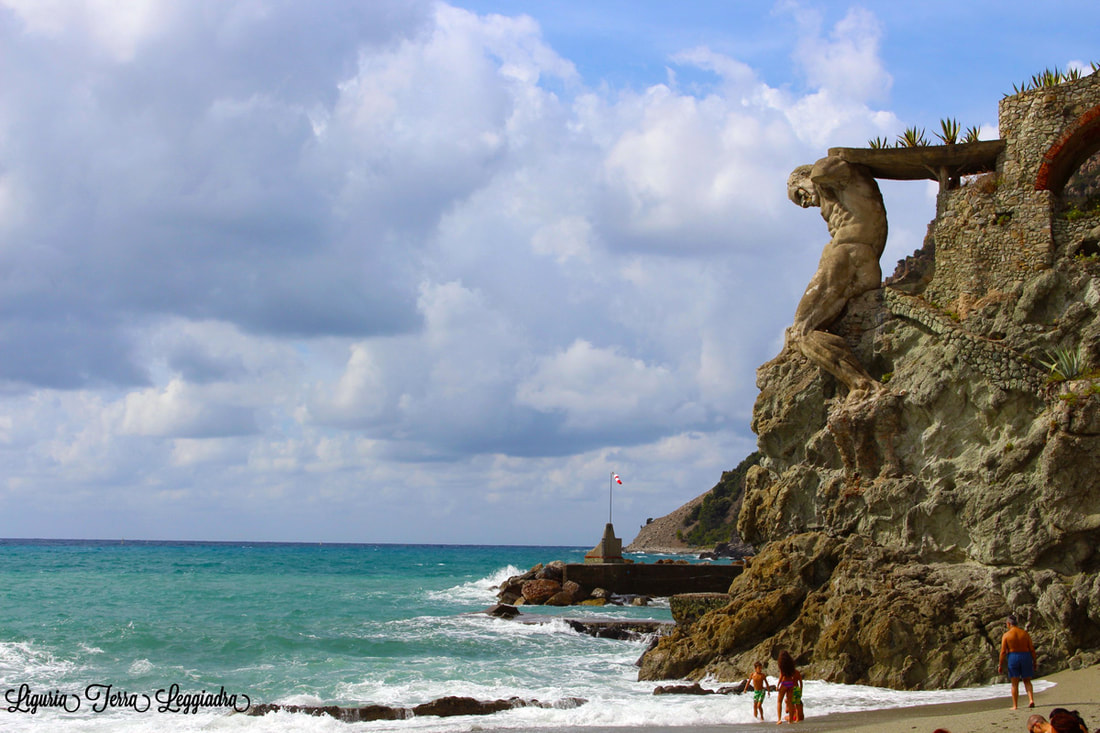
Il Gigante di Monterosso, the Giant of Cinque Terre GRAND VOYAGE ITALY
Il Gigante id a stone sculpture located at the end of Fegina Beach, in the tiny town called Monterosso al Mare, in Cinque Terre National Park, in the North of Italy. We went to this beach in August-2019 (very nice place) and we could see Il Gigante, which is ok, but not more.. The statue is a sight for maximum of 2 minutes. After that, the.

Cinque Terre Monterosso la Statua del Gigante Flickr
La Statua del Gigante di Monterosso ha una storia molto interessante legata al 900: ecco chi l'ha fatta costruire, cosa rappresenta e come accedere alla spiaggia sottostante.

The Giant of Monterosso is a sculpture of 1910, cement and iron, which
Statua del Gigante Statue in Monterosso al Mare. CC BY-SA 4.0 / Waldemar L. Il Gigante stands at the far end of Fegina beach, marking the beginning of the marina and extending beyond the parking area. This sculpture, crafted from reinforced concrete and iron in 1910, is the creative work of Arrigo Minerbi from Ferrara and engineer Levacher. It.
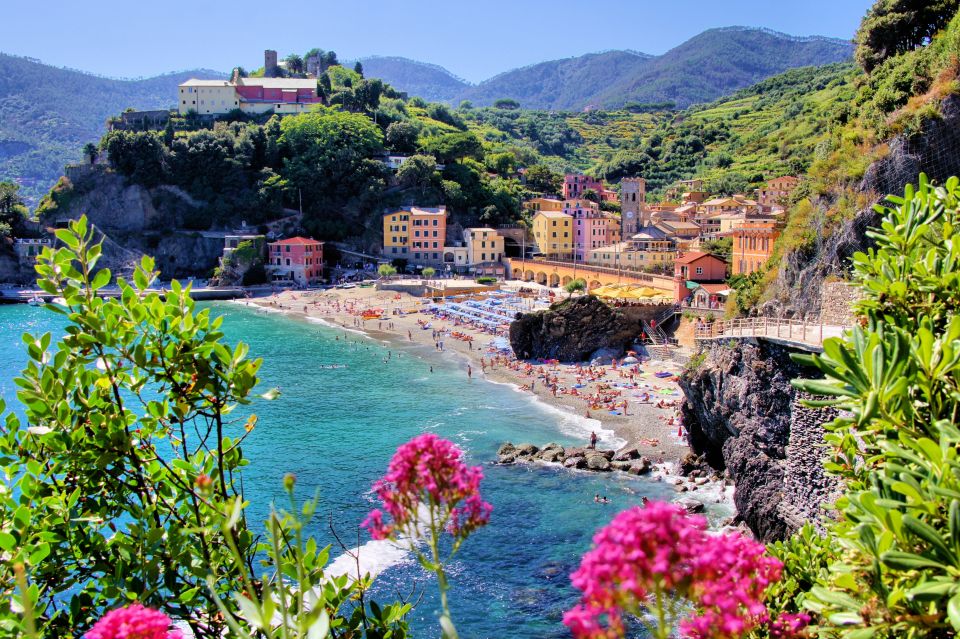
Cinque Terre chiusa spiaggia sotto Statua del Gigante a Monterosso
Statua del Gigante (o Statua di Nettuno) Statue of Giant is an imposing and striking structure in reinforced concrete, leaning against a spur of rock overlooking homonymous beach. Created in 1910 by architect Francesco Levacher and the sculptor Arrigo Minerbi, Statue of Giant, depicting Neptune, is 14 meters high and weighs 170 tons.

Statua del Gigante Monterosso storia, spiaggia, come arrivare
In 1966 the statue was weakened further by rough seas, weathering it further. In 1982 an intrepid climber discovered treasure "alle calcagna del gigante," or "at the heels of the giant".
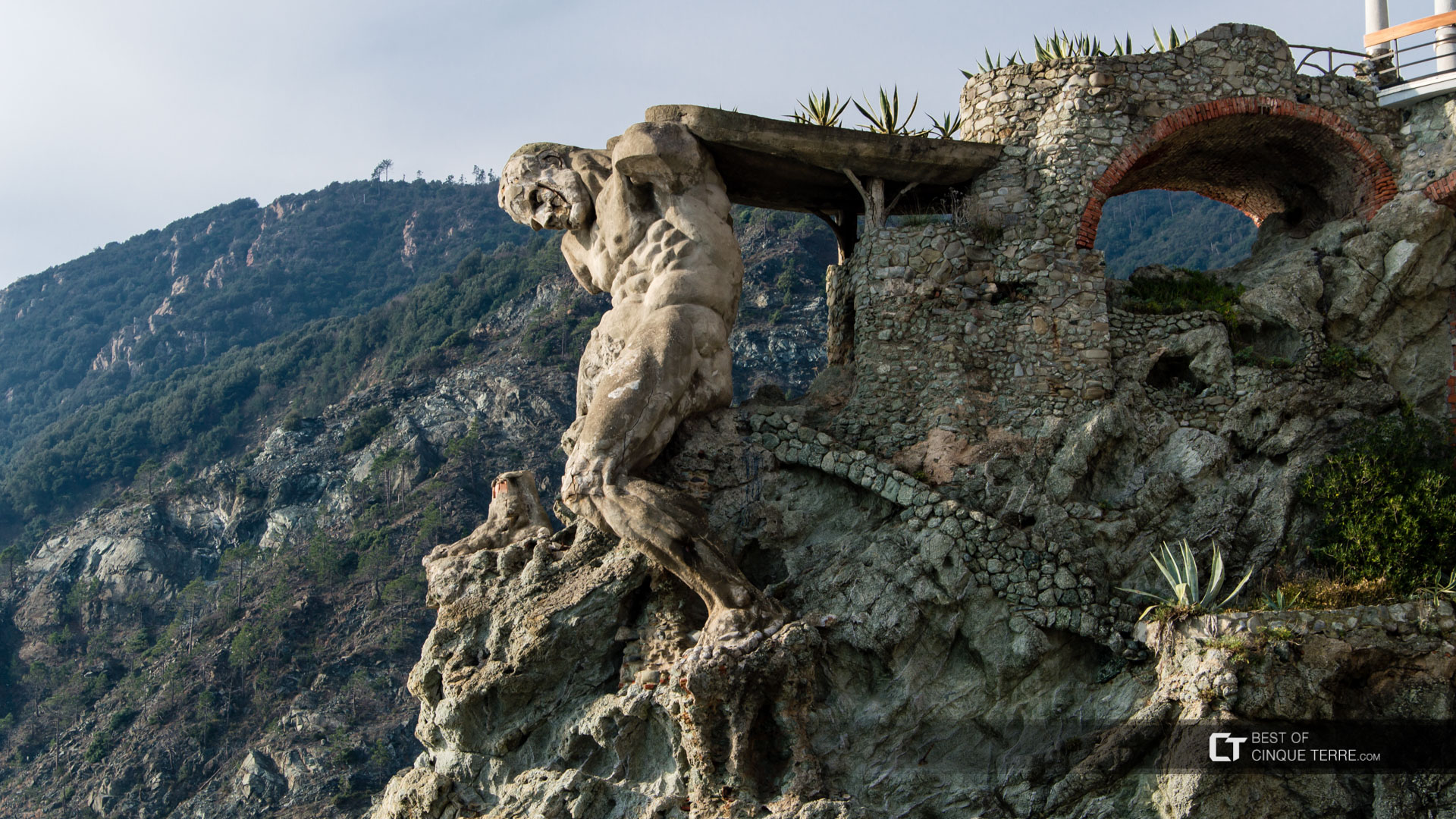
Monterosso al Mare. The largest beach in the Cinque Terre Fegina
On the Cinque Terre coast, the Voyager will come across il Gigante, the gigantic statue of Neptune in Monterosso on the beach near Fegina. Sculpted by the Arrigo Minerbi in 1910, he is over 40 feet tall and holds up part of the Villa Pastine. Neptune used to hold a trident and a giant clam shell above his shoulders that was used as a dance.

The Giant of Monterosso KD's Stolen History Blog
A Monterosso - uno dei comuni delle Cinque Terre, il più a ovest - vicino alla spiaggia di Fegina ed appollaiata su un promontorio roccioso, si trova una statua gigante del dio Nettuno.. Le bombe alleate e il mare mosso hanno indebolito l'onnipotente colosso dei mari, riducendolo ad una rovina: ma anche senza braccia e tridente, le dimensioni della statua incutono soggezione e se ne.

STATUA DEL GIGANTE MONTEROSSO AL MARE MOV YouTube
The Statue of the Giant, also referred to as the Statue of Neptune, is a rather recent acquisition for the architectural landscape of Monterosso al Mare.Built no sooner than 1910 and designed by Arrigo Minerbi (sculptor) and Francesco Levancher (architect), the statue is a concrete and iron colossus measuring 14 meters in height and amounting to 170 tons.
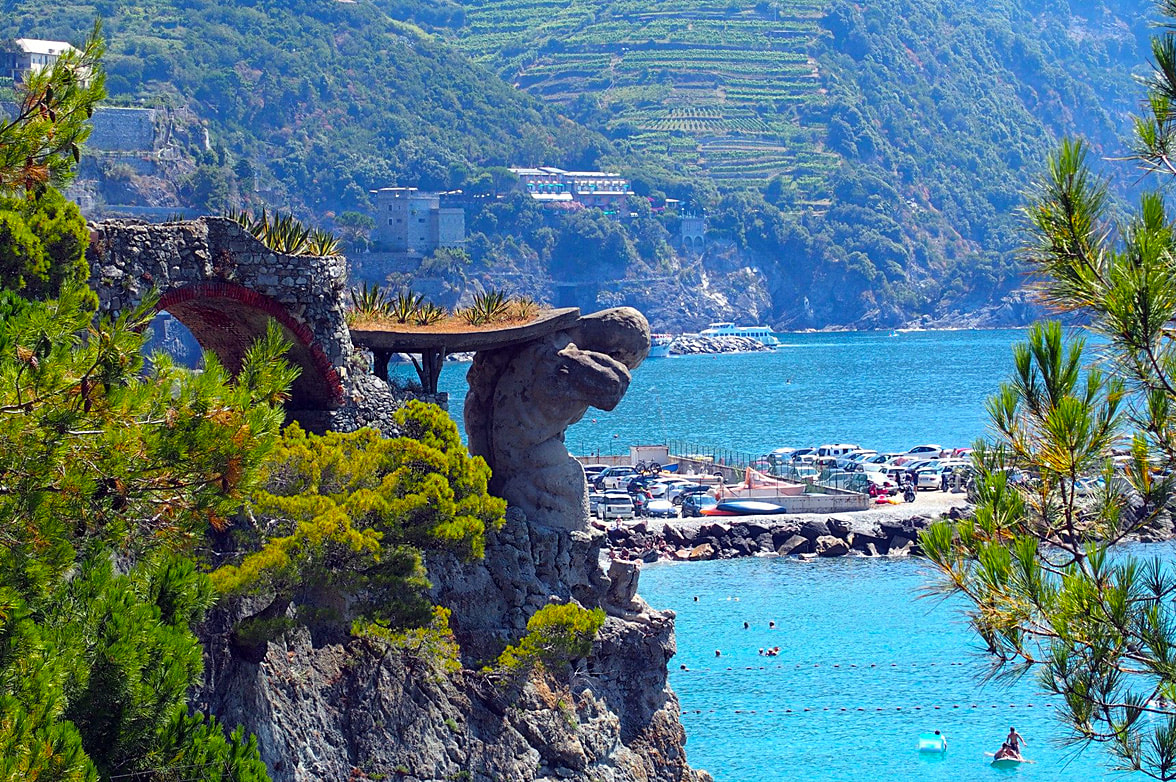
Il Gigante di Monterosso, the Giant of Cinque Terre GRAND VOYAGE ITALY
The lawyer Giovanni Pàstine, a rich man from Monterosso, began to build a delightful villa close to the hill that ends in Punta Mesco and had the brilliant idea of building a caryatid-shaped terrace on the end of the spur overlooking the sea. supported by the Giant. The task was given to the sculptor from Ferrara, Arrigo Minerbi, helped by the.
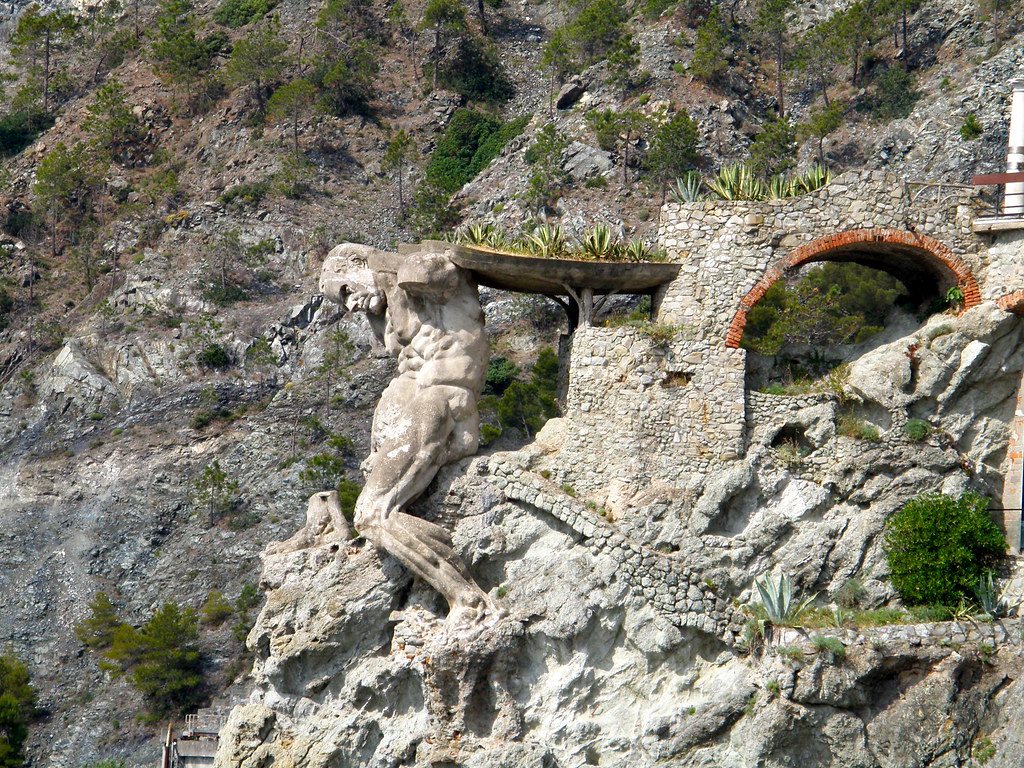
Il Gigante di Monterosso al Mare Il Gigante is a statue of… Flickr
La statue du géant. Il Gigante est situé au bout de la plage de Fegina, là où commence la marina, au-delà du parking. Il s'agit d'une sculpture en béton armé et fer de 1910, œuvre d'Arrigo Minerbi de Ferrare et de l'ingénieur Levacher, construite à la demande de Giovanni et Juanita Pastine, monterossini de retour d'Argentine après.
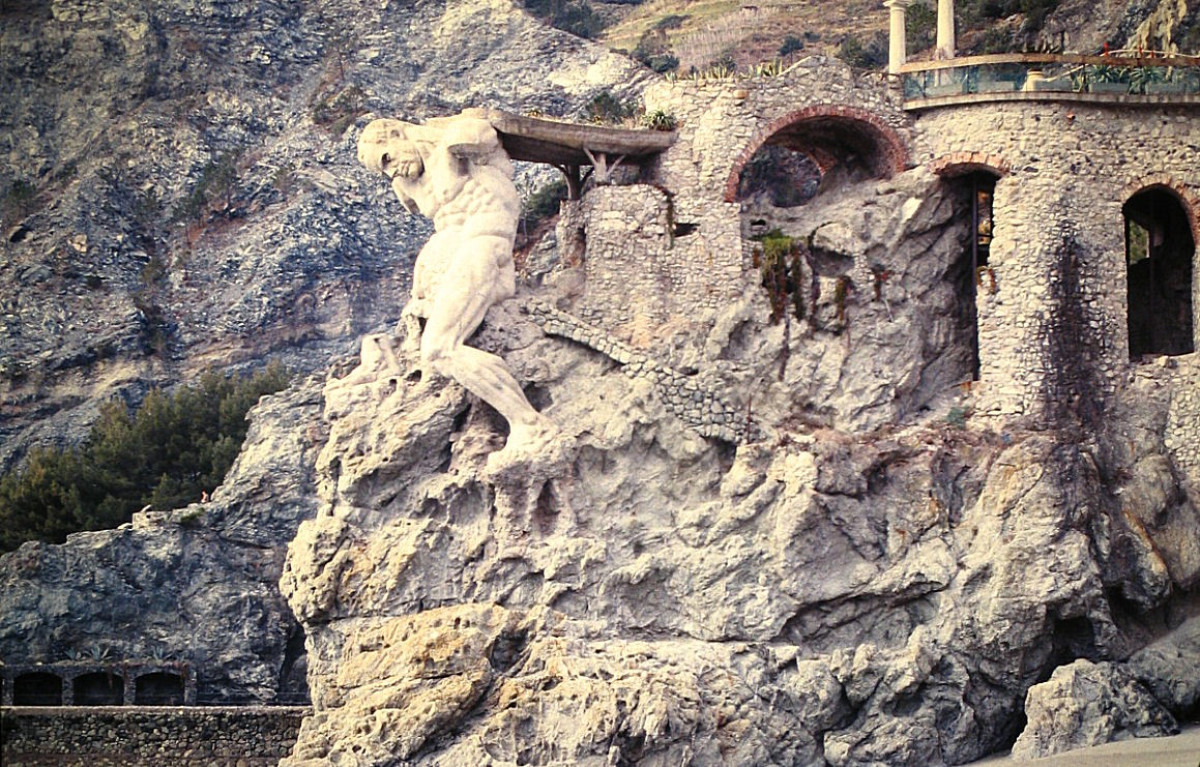
Statua del Gigante (o Statua di Nettuno) (Monterosso al Mare (Sito
A ridosso della collina, sullo sperone a picco sul mare, il Gigante è quel che resta di Villa Pastine. La statua rappresenta Nettuno ed è in cemento armato e ferro. Alta 14 metri è stata recentemente ristrutturata. Scopri di più. Scritta in data 13 novembre 2023.
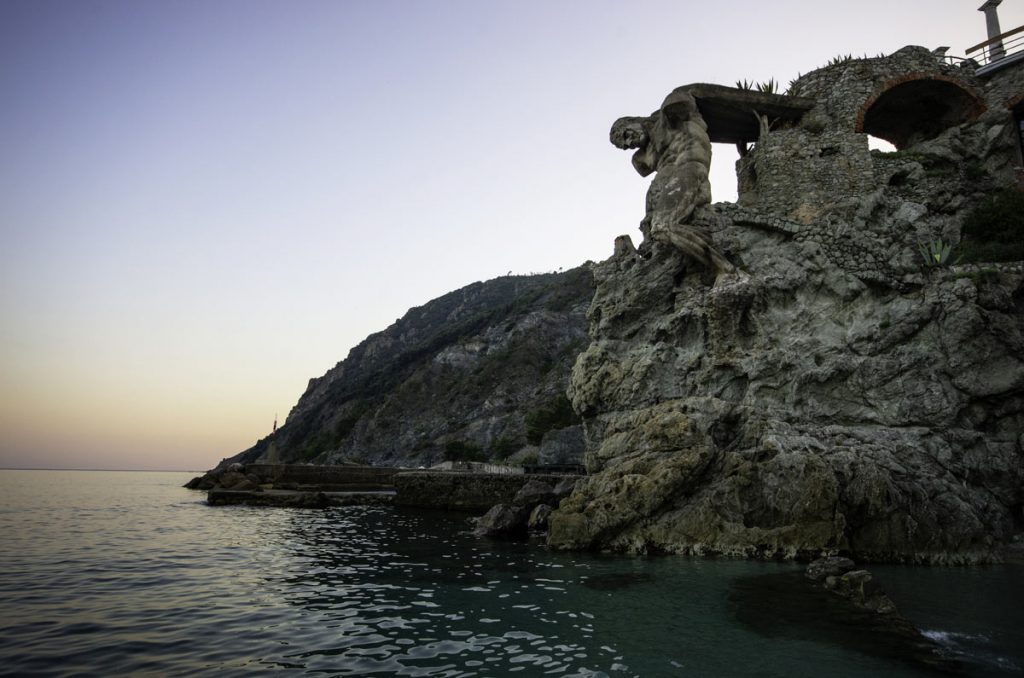
Monterosso al Mare cosa vedere, come arrivare, hotel e b&b
The Neptune was built by a Jewish Italian sculptor, Arrigo Minerbi of Ferrara in 1910. Made from concrete and iron, the giant 14-metre statue has suffered a great deal in its 100-year existence. Monterosso del Mare was bombed during WW II and Il Gigante lost his arms, trident and a giant seashell. Sadly, nature took its toll as well as the.

Monterosso
Staua del gigante Nettuno di Monterosso al Mare in Italian. In occasion of a trip to Italy, in the new part of the village of Monterosso, it is possible to admire the imposing statue of the "giant ": work created by sculptor and architect Levacher Minerbi in 1910. It represents the god of the sea Neptune and became the symbol of Monterosso.

Statua del Gigante Monterosso storia, spiaggia, come arrivare
Statue de Neptune construite en 1910 par Arrigo Minerbi à Monterosso al Mare. Cette statue de Neptune de 14 mètres de haut (d'où le nom de Gigante) et de 170 tonnes en béton armé domine la plage de Fegina. Elle fut construite en 1910 par Arrigo Minerbi, sous la direction de l'architecte Francesco Levacher, afin de soutenir une terrasse.